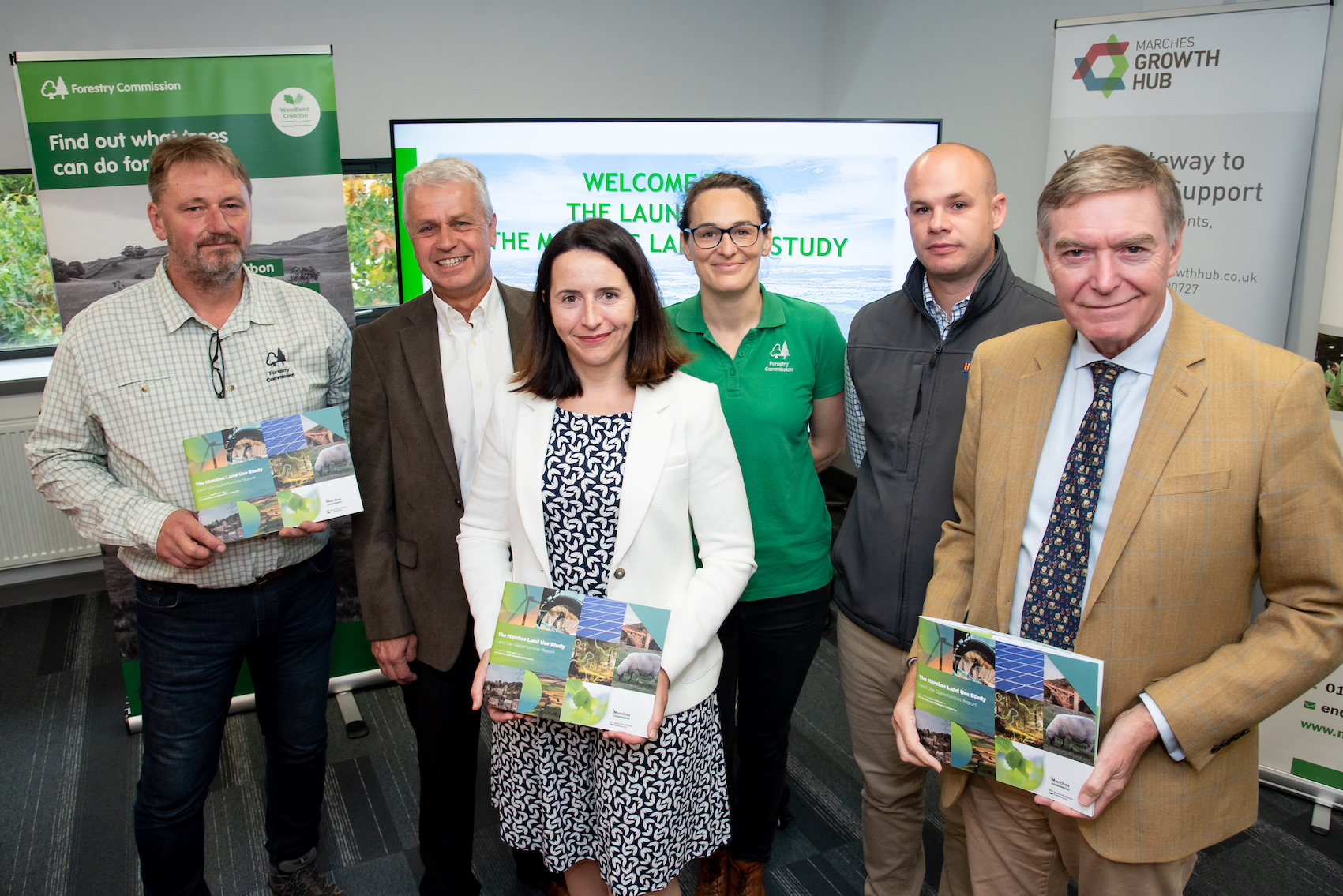Published: October 4th, 2023
The Marches has the opportunity to become the green lungs of the West Midlands – helping significantly boost its economy, environment and quality of life, a major event organised by the Marches Local Enterprise Partnership has heard.
Marches LEP chief executive Rachel Laver said a new study commissioned by the LEP detailed huge potential for alternative land uses across Herefordshire, Shropshire and Telford & Wrekin which could help create a flourishing, sustainable economy and meet the drive for a Net Zero rural economy.
The event – at the Agri-Epi centre on the edge of Newport, co-sponsored by the Forestry Commission – saw the official launch of the Marches Land Use Study and a new £100,000 Low Carbon Innovative Land Use Fund established by the Marches LEP.
The LEP teamed up with the Marches Nature Partnership, the Forestry Commission and other key stakeholders to stage the event which featured a range of expert speakers including Ludlow MP Philip Dunne, chair of Parliament’s environmental audit committee.
Rachel said that the land use study – prepared by leading environmental consultancy TACP (UK) Ltd – highlighted some of the potential for green investment, particularly around energy production, woodland creation and alternative environmentally-friendly land uses.
“The study is a guide to help landowners look at alternative ways of managing their land, helping to address the lack of clean energy but also address the bio-diversity loss which was highlighted in the States of Nature Report published on the same day. The UK now is one of the most nature depleted countries in the world.
“We know that measures such as the biodiversity net gain legislation – which is likely to come into law next year and means all developments must ensure at least a ten per cent gain in biodiversity – will have a real impact on land use.
“It gives us in the Marches the opportunity to become the green lungs of the West Midlands. We have the land here which is not available in urban centres to deliver biodiversity gain and at the same time help create a sustainable rural economy which is environmentally sound and brings real social benefits.
“We look forward to working with all our partners over the coming months to accelerate the work in the report.”
The Low Carbon Innovative Land Use Fund is open to all businesses in the Marches and offers seed funding to help them develop and deliver projects which reflect some of the opportunities outlined in the land use report.
Rachel said bids for funding could include projects which brought economic benefits provided from the region’s natural capital, energy generation, decarbonisation products, schemes to improve air quality and water quality, water storage, flood prevention, habitat creation and restoration or which tackled fuel poverty.
“Our land use study provides a real baseline from which we are committed to building. We want to hear from any companies which think they have an innovative project which might qualify for this.
Mr Dunne told more than 60 landowners, land managers and professional representatives at the event that the biodiversity net gain legislation would provide “an enormous opportunity to change the way in which we see what we can do with our land.”
Other speakers at the event included Colin Preston, chair of the Marches Local Nature Partnership, Wayne Barnes and Lisa Barlow from the Forestry Commission, CLA environment committee chair Joe Evans and Ed Brown, head of agroecology at Hutchinsons crop production specialists.
To read the Land Use report visit https://www.marcheslep.org.uk/wp-content/uploads/2023/09/Marches-Land-Use-Study-2023.pdf
To apply for support from the Marches Land Innovation Fund visit https://www.marcheslep.org.uk/transparency/tenders-and-vacancies/


